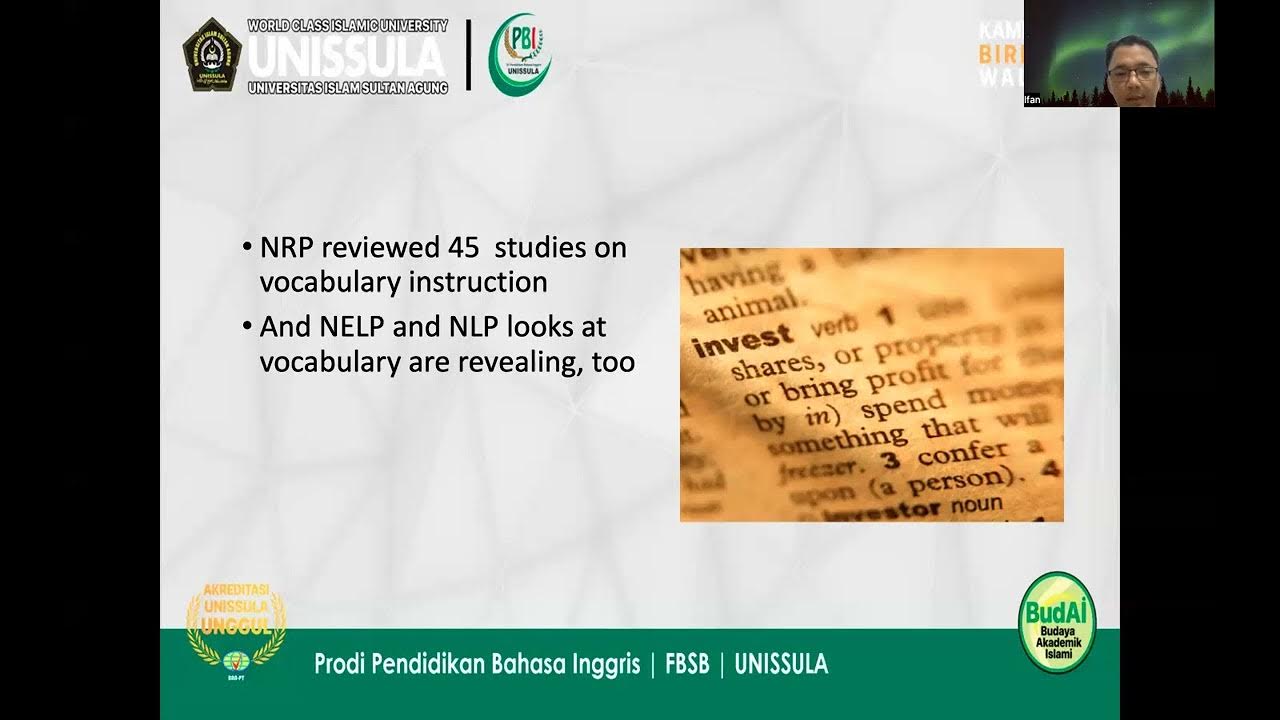Types of claims in argument | Reading and writing
Summary
TLDRIn this educational video, Renee from Teaching Learning English guides learners on distinguishing between different types of claims in reading and writing. She explains the importance of recognizing explicit and implicit information and how it aids in evaluating an author's claims. Renee outlines the characteristics of strong claims and delves into the three primary types of claims: fact, value, and policy. Each claim type is explored with examples and strategies for defending them, emphasizing the need for clear evidence and logical reasoning in argumentation.
Takeaways
- 📚 The lesson focuses on improving reading skills and understanding the properties of a written text, which include organization, coherence and cohesion, language use, and writing mechanics.
- 🎯 The lesson objectives are to differentiate types of claims, classify statements according to their type, and formulate statements for each claim type.
- ❤️ The lesson uses romantic sentences to illustrate the difference between implicit and explicit information in critical reading.
- 🔍 Critical reading involves distinguishing explicit information (clearly stated in the text) from implicit information (suggested or implied).
- 📖 Reading is an active skill that requires interaction with the author to identify the central argument or claim of the text.
- 💭 A claim is the writer's point or position on a topic, which they aim to prove with evidence and is usually found in the introduction or early paragraphs.
- ✅ Good claims should be argumentative, specific, interesting, and logical, with reasonable support.
- 📊 There are three main types of claims: claims of fact (based on data and observation), claims of value (based on morals and standards), and claims of policy (actions to address issues).
- 🔑 To defend a claim of fact, clearly state the claim, define terms, provide sufficient and accurate evidence, and have a clear conclusion.
- 🏛 To defend a claim of value, clarify the values being defended, use examples to illustrate, and consider the relative importance of values.
- 🏛️ To defend a claim of policy, convince the audience of a problem, propose a clear solution, consider opposing arguments, and support the proposal with data and moral considerations.
Q & A
What are the four properties of a written text mentioned in the script?
-The four properties of a written text mentioned are organization, coherence and cohesion, language use, and the mechanics of writing.
What are the lesson objectives for the reading and writing class?
-The lesson objectives are to differentiate the types of claims, classify statements according to their type, and formulate the statement for each type of claim.
What is the difference between implicit and explicit information in critical reading?
-Implicit information is what is suggested and not directly stated in the text, while explicit information is clearly stated in the text.
What is a claim in the context of reading and writing?
-A claim is the writer's point or position regarding a chosen topic, also known as the central argument or thesis statement of the text, which the writer tries to prove by providing details, explanations, and evidence.
What are the characteristics of good claims according to the script?
-Good claims should be argumentative and debatable, specific and focused, interesting and engaging, and logical with reasonable support.
What are the three types of claims mentioned in the script?
-The three types of claims mentioned are claims of fact, claims of value, and claims of policy.
How are claims of fact defined in the script?
-Claims of fact refer to a condition that has, exists, or will exist, based on data, documents, and scientific observation and research.
What are the guiding questions to consider when writing or analyzing claims of fact?
-Guiding questions for claims of fact include: Did it happen? Does it exist? Is it true? How can its truthfulness be verified? Is it a fact?
What are claims of value and how are they defended?
-Claims of value are value judgments made based on morals, standards, and norms. They are defended by making clear the values or principles being defended, suggesting that adherence to these values will bring about good results, and using examples and illustrations to clarify meanings.
What are claims of policy and how are they defended?
-Claims of policy are specific and measurable actions needed to address issues or concerns. They are defended by convincing the audience that a problem exists, making the proposal clear and precise, considering opposing arguments, and supporting the proposal with solid data and moral considerations.
What are some examples of claims of policy given in the script?
-Examples of claims of policy include introducing a dress code for all students and allowing kids aged 10 to 14 outside their homes.
Outlines

هذا القسم متوفر فقط للمشتركين. يرجى الترقية للوصول إلى هذه الميزة.
قم بالترقية الآنMindmap

هذا القسم متوفر فقط للمشتركين. يرجى الترقية للوصول إلى هذه الميزة.
قم بالترقية الآنKeywords

هذا القسم متوفر فقط للمشتركين. يرجى الترقية للوصول إلى هذه الميزة.
قم بالترقية الآنHighlights

هذا القسم متوفر فقط للمشتركين. يرجى الترقية للوصول إلى هذه الميزة.
قم بالترقية الآنTranscripts

هذا القسم متوفر فقط للمشتركين. يرجى الترقية للوصول إلى هذه الميزة.
قم بالترقية الآن5.0 / 5 (0 votes)






